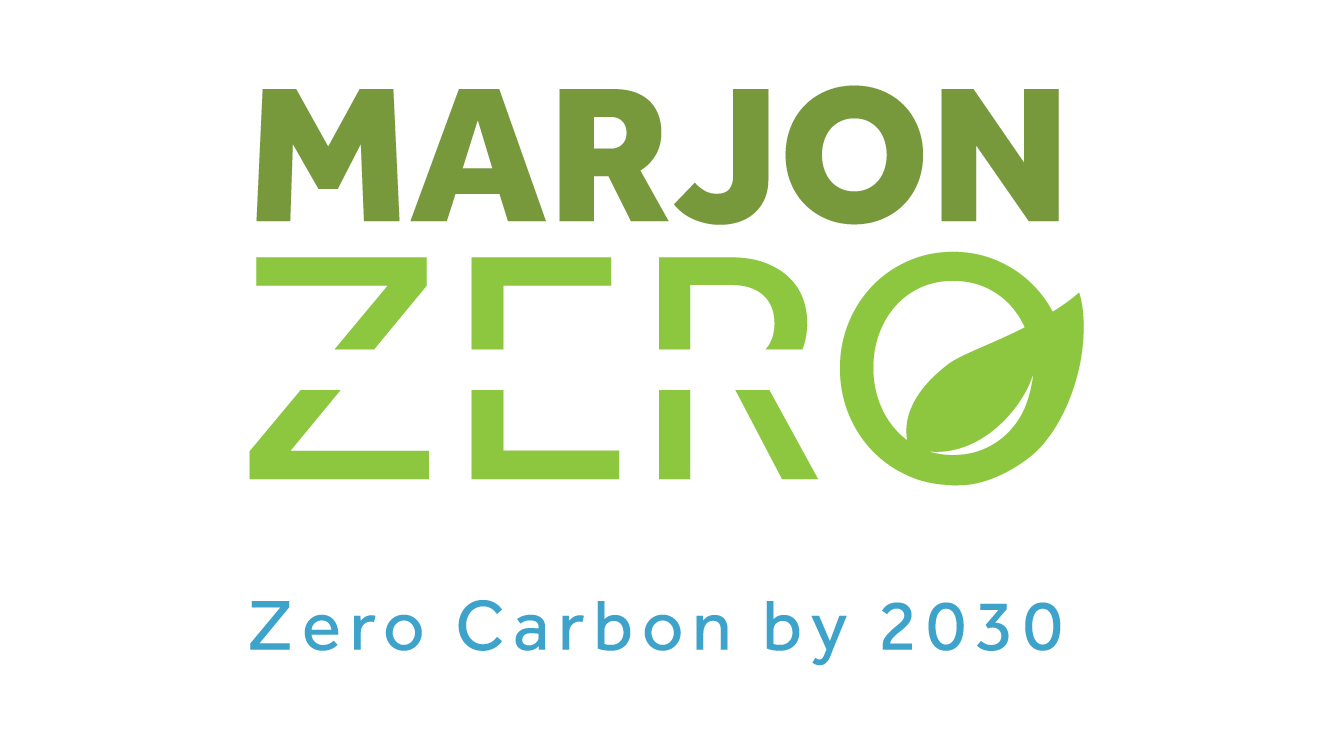Sustainability Strategy
The sustainability strategy is currently being revised. If you’d like to contribute to the consultation, please contact sustainability@marjon.ac.uk. The new strategy will be posted here as soon as it is finalised.

Marjon Zero
Over the course of the 2019-20 academic year, Plymouth Marjon University embarked on a process of developing a trail blazing Campus Development Plan to support the environmental, physical, social well-being and economic development of the beautiful university campus in the period 2020-2035.
Our 2022 Sustainability Strategy document builds upon the Campus Development Plan and starts to look at the campus operations on a larger scale, ensuring sustainability is a priority across the entire institution.
In recognition of the climate emergency, Plymouth Marjon University has committed to reaching net-zero carbon emissions by 2030. This target is limited to scope 1 and 2 emissions but will also include targeted reductions in scope 3 emissions.
Our Sustainability Strategy will help us to achieve our sustainability ambitions and to continue carrying out trail blazing projects and initiatives to make Plymouth Marjon University a green campus of the future.
We strive for excellence in environmental, financial and social responsibility and throughout this strategy report we will demonstrate our drive to achieving sustainability across all our activities.
You will find related policies and guidance documents below.

Carbon Management Plan
Carbon Management Plan 2020-2030
Decarbonisation is the term used for the process of removing or reducing the carbon dioxide (CO2) output of a country’s economy. In recognition of the climate emergency and responding to student demand, Plymouth Marjon University have committed to reaching net-zero greenhouse gas emissions by 2030. The target is limited to scope 1 and 2 emissions but will also include targeted reductions in scope 3 emissions. Marjon is already seeing an 80% reduction in CO2 compared to our 2005 baseline, and in the last ten years, Marjons’ direct emissions have been cut by approximately 60%, and the University wants to continue this trend to zero over the next ten years. Carbon reduction projects undertaken to date include: installation of 2,114 solar panels, over 3,000 new LED lights, new BEMS system, transformer upgrades, 10 EV charging points installed, 55 Ground Source Heat Pumps installed and upgraded loft insulation.
Construction and Refurbishment Policy 2022-2030
In line with the sustainability strategy, the Construction and Refurbishment policy is being revised. This policy focuses on Marjon’s plans for new student accommodation as well as other refurbishment work as outlined in the 2020 Campus Development Plan. The new policy will be posted here as soon as it is finalised.
Sustainable Catering Plan 2020-2023
Marjon University and its catering provider Chartwells (part of the Compass Group) are committed to achieving the University's overarching mission of embedding sustainability into every aspect of the university. We are dedicated to developing a sustainable food culture at the University and ensuring sustainability throughout our supply chain. We make sure that our contracted catering company has sustainability as a key focus of its operations. The University and Chartwells are proud to support a sustainable food agenda. We believe that understanding and managing the impact that our actions have on people and the environment, both locally and globally is an essential part of being a socially responsible and transparent institution and business.

Biodiversity Plan 2020-2025
Marjon University is located in the north of the city. The campus is approximately 17 ha in size and comprises of a variety of different habitats. It is important that we not only look at decarbonising campus, but also at any carbon offsetting initiatives we can do e.g. Marjon has planted 120 new trees across campus in 2022. Providing habitats for our local wildlife e.g. our campus deer, is important to Marjon, as well as contributing to the city’s wildlife corridor. In 2021 the Devon Wildlife Trust compiled a Biodiversity Survey of campus of which the findings from the survey have helped to steer this biodiversity plan.
Ethical Investment Policy 2021-2026
Ethical Investment Policy 2021-2026
Marjon University investment policy is that we will invest our funds ethically within the Universities Values in order to demonstrate a positive approach to the environment and society whilst securing economic benefit and financial sustainability. The University values are at the heart of everything we do and they are inspired by our ambitions for the future, encouraging both the ability and the aspiration to improve lives for all. We will challenge our financial partners to manage our funds, on our behalf, in line with our Values.

Education for Sustainable Development 2020-2030
Education for Sustainable Development
Knowing about sustainability and how to be sustainable in academic, professional, and personal contexts is an essential part of becoming a twenty first century graduate. Marjon recognises this and encourages its academics to consider ESD in all its curricula. It does this by embedding ESD into local infrastructure which influences curriculum design. For example, the Marjon values of humanity, ambition, curiosity, and independence are aligned with sustainability principles and help inform curriculum design and content.
Staff and Student Engagement Policy
Staff and Student Engagement Policy_Sustainability 2020-2030
Staff and student engagement is an important aspect of our Sustainability Strategy. The University has a Learning and Teaching Strategy 2020-2050 document that can be found here. This document outlines our vision to inspire creative and engaging learning environments, to embrace the holistic development of all those within the University community and to deliver an authenticity of experience to empower self-realisation. Included in this strategy is our policy which states: “Curricula will ensure that learning, teaching and assessment is inclusive and supports the success of all students, developing graduate employability skills and attributes, developing students’ social capital as well as students’ understanding of their social and environmental responsibilities”.
